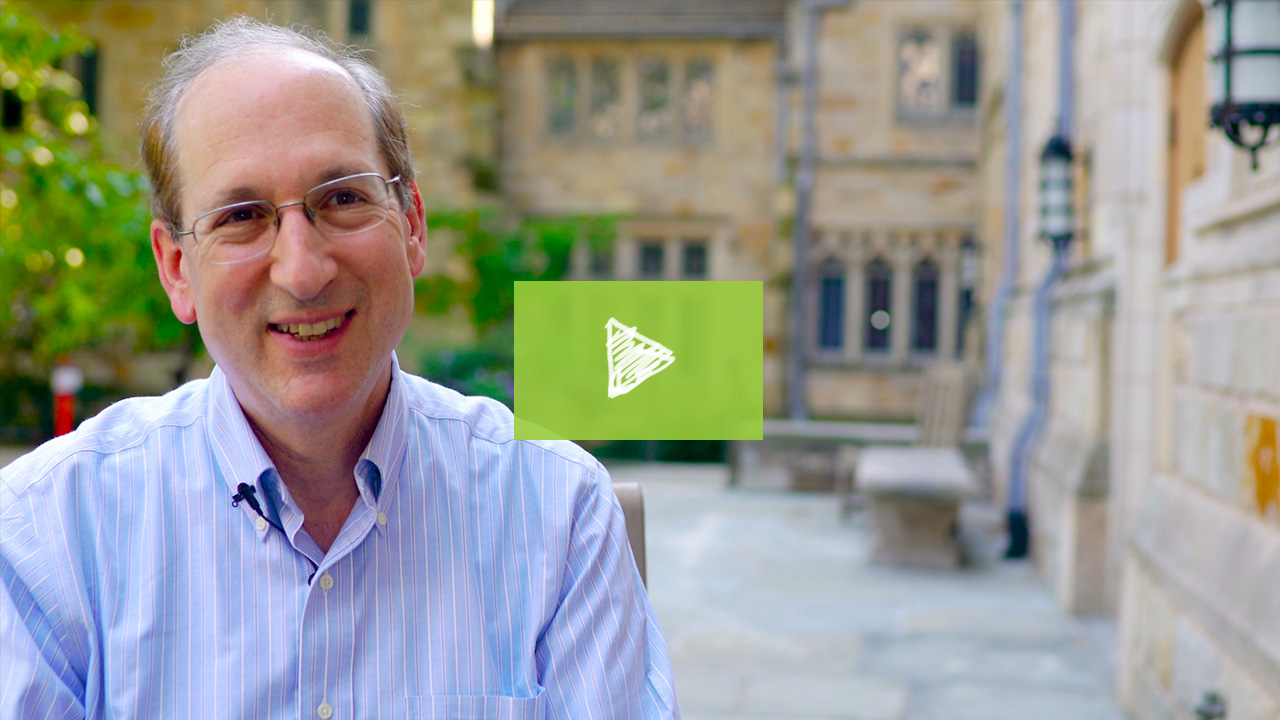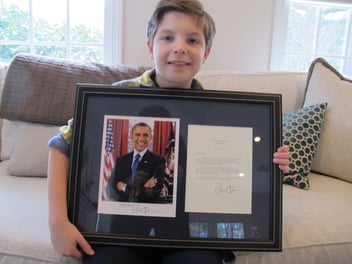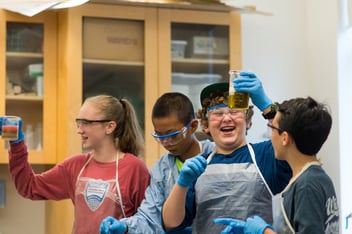Weekly Edventure #18: President's Day: Civil Rights Scholar, Fred Lawrence, On Protecting Free Speech

Surprisingly, biologists aren’t equipped to tell us what makes us human. There is a complete absence of evidence — or even an understanding of what that evidence would even look like — to determine which primates are considered more human or less human than another.
We’ve got opposable thumbs (score!). We’re bipedal mammals. We’ve got loads of weird hair and non-hair. A larynx to assist us in singing along to our favorite song. But, when we put biology on paper, we couldn’t tell our driver’s license apart from that of a chimpanzee’s fake ID.
However, there are plenty of things that fit into a folk-category more than a scientific one: We laugh. A lot. We cry. A lot. We have countless neurons and synaptic possibilities that make us question reality, develop belief systems, make things, break things, celebrate, regret, feel an inexplicable emotional need to sing along when our favorite song comes on the radio.
All these forms of expression are clues that make humans different than every other mammal.
When Adam and I connected with lawyer, civil rights scholar, and EXPLO Visiting Instructor, Fred Lawrence (see video above), about this sense of expression, Lawrence made it very clear that expression is what makes freedom of speech so important. 
A quote I really loved from our interview was when Lawrence said, "What separates us from the other mammals? …. It is the ability to think creatively, and express ourselves and communicate. A good society, a forward thinking society advances that, protects that, makes it possible, and indeed makes it at the core of the mission of society."
When we advocate for free speech, it feels a bit like we are advocating for common sense; obviously freedom of expression is important because, well, because it is. It’s who we are as human beings. It’s in our nature to express, debate, create, connect.
Presidents Day Weekend is an important time to remind our network to consistently engage in free speech, and voting is a key example. On a day where we choose to honor our past presidents — presidents who have been elected entirely by our ability to exercise our thoughts publicly — it is a great time to participate in the marketplace of ideas with each other.
The right to vote has not always been an indefensible right, despite the fact that this form of expression is what makes us human. When we expand voting rights, we expand the amount of voices in our democratic discussion. We strengthen our society of ideas. Below is a list of when citizens were granted (or are still waiting for) the right to vote in the United States.
1887: Native Americans are guaranteed the right to vote if and only if they are willing to disassociate themselves from their tribe per the Dawes Act
1920: Women are guaranteed the right to vote by the Nineteenth Amendment to the United States
1924: All Native Americans are granted citizenship and the right to vote, regardless of tribal affiliation
1943: Chinese immigrants are given the right to citizenship and the right to vote by the Magnuson Act
1961: Residents of Washington, D.C. are granted the right to vote in U.S. Presidential Elections
1965: Protection of voter registration and voting for racial minorities and language minorities
1971: Adults aged 18 through 21 are granted the right to vote enacted in response to Vietnam War protests, which argued that soldiers who were old enough to fight for their country should be granted the right to vote
1986: United States Military overseas, living on bases in the United States, abroad, or aboard ship are granted the right to vote
Today: Currently, Maine and Vermont are the only states with unrestricted voting rights for people who are felons. As of 2008, over 5.3 million people in the United States were denied the right to vote due to felony disenfranchisement.


Here are some really interesting (and some just fun) links that we have been recently indulging in to learn more about the freedom of expression.
- The Constitution | Article I.
- Read more about Fred Lawrence, his history at Georgetown Law Center, and his time as President of Brandeis University, Dean of the George Washington University Law School, and Visiting Professor and Senior Research Scholar at Yale Law School.
- "Who am I? What am I? Where am I?" An animated video explains what the expression of an existential crisis really means.
- An oversized adaptation for the tiny humans out there. Charles Darwin's On the Origin of Species book for kids.
- In the name of tolerance, the right not to tolerate the intolerant is....tolerable? The Paradox of Tolerance lends itself to compelling uncertainty on how to find a happy medium between expression and forbearance.
- A psychological relief valve and a guard against despotism, laughter is a uniquely human – and collective – activity.
- A to-the-point mug that invites you to dance and enjoy music every day.
- Shoutout to The Electronic Frontier Foundation, a leading nonprofit organization defending digital free speech and privacy that our EXPLO IT Dept. gives a  .
.


At EXPLO, the art of listening takes on many forms, exercises, and events. Just a few EXPLO experiences that encourage students to practice listening critically include:
- Course: See how the rule of law is applied in nation-states with varying governments and codes of conduct in Criminal Justice (grades 10-12)
- Workshop: Learn to combine facial expression, body language, and a basic library of hand gestures to communicate without spoken words in American Sign Language (grades 4-7)
- Club: Have a round table discussion about big and small-picture philosophical questions with students from all over the world in Philosophy Club (grades 8+9, 10-12)
- Course: Hone essential debating skills and techniques in Debate to strengthen your argument and win over an audience, a judge, or your mother (grades 8+9)
- Activity: Engage in deep discussion with your peers about the current political climate, the most influential books of our time, or what one should do during a robot invasion (grades 8+9)
- Weekend Trip: Nothing like learning the universal language: food! Come to Silo Cooking School and spend the day learning creations from master chefs (grades 10-12)
- Course: Influenced by artistic idealists, disrupt the status quo through Making Art for Social Change and ensure all voices are being heard (grades 8+9)


Don't want to miss a future Weekly Edventure? Since carrier pigeons and smoke signals haven't yet made a comeback, we’ll take advantage of more modern messaging to ensure it reaches your inbox.




